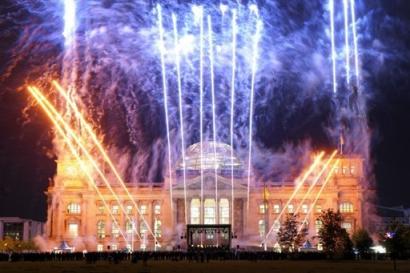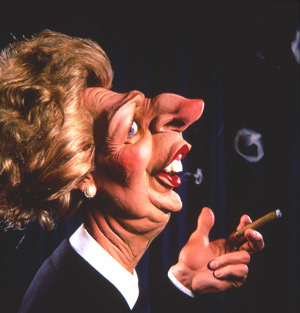Category Archives: Politics
Moral Systems In Business
Margaret Thatcher on Her Resignation from Goverment
Thatcher came to lead the Conservative Party in 1975 by defeating Ted Heath in a no confidence motion. Heseltine threatened Thatcher ever since he left cabinet over the Westland affair. Britain had high inflation in 1989. Thatcher was contested by Sir Anthony Meyer but was resoundingly vindicated. Thatcher’s husband Denis wanted her to announce a resignation in 1989 but she didn’t. Thatcher decided to increase the time spent with backbenchers. She could not find a successor who would continue her policies. John Major was acceptable enough. The Conservative Party wanted Thatcher to leave at an early time than she would have liked.
Geoffrey Howe’s resignation was a major blow to Thatcher’s leadership. Howe disagreed profoundly with Thatcher over the European Union. Thatcher was concerned about the impact of his resignation. Howe’s Commons speech was a powerful attack that made Thatcher boil inside. Howe said Thatcher was intransigent stating that when negotiating with Europe “it was rather like sending your opening batsmen to the crease only for them to find, the moment the first balls are bowled, that their bats have been broken before the game by the team captain”. Howe stated that ‘the time has come for others to consider their own response to the tragic conflict of loyalties with which I have myself wrestled for perhaps too long.’ The speech was deeply damaging. Thatcher was hurt and shocked. Thatcher hated Geoffrey Howe clearly in her memoirs and wonders why she had advanced his career so far. Howe deliberately set out to bring down a colleague in a brutal and public way. Thatcher still doesn’t understand why Howe did what he did. Howe ultimately assassinated his own character in the process.
Heseltine was promising to review the community charge and education reforms. Thatcher disliked Heseltine’s long-standing corporatist and interventionist views. While on a Paris Conference, the first ballot occurred at home. Thatcher received only 204 votes to Heseltine’s 152. This was not very promising. It was a huge blow to her authority. It would be very difficult to regain lost respect of her colleagues and advisories. Thatcher initially called to have a second ballot. Denis told his wife not to continue. Heseltine was unthinkable and so she could not handle defeat under these circumstances. The old wing of the party was hesitant of Thatcher but was now more concerned about undoing her good work. During this panicked period Thatcher received assessments of her possible win. Thatcher talked to back benchers and cabinet members. They were all saying that they would support her to the end BUT she could not win and that she should step out of the way for either John Major or Douglas Hurd. This was repeated over and over again. Thatcher was extremely upset about these people’s suggestions. Ken Baker said the method of leadership selection was farcical but she was screwed. Ken Baker said that the Thatcher campaign to track supporters etc was clearly deteriorating. Thatcher supported John Major as the new leader. In order to assure that the Conservatives are united for the next election, Thatcher finally decides to stand down for a 2nd ballot. John Major gains the support necessary to defeat Heseltine. Her closing speech wasn’t very good she admits. She cried a couple of times and then she left 10 Downing Street.
Margaret Thatcher on German Unification & the Soviet Collapse
 On German Reunification/Soviet Collapse
On German Reunification/Soviet Collapse
According to Thatcher, the strategy to defeat communism was working. Its defeat would mean changes to Britain’s foreign relations and NATO’s defenses would arise. George Bush attempted to distance himself from Reagan by turning to Germany as his key ally in Europe. The welcome revolutions in Eastern Europe brought about the German Question. Thatcher’s fears of a unified Germany were mocked as Warmongering but were vindicated in 1990. The protectionism of Germany’s Europe which the US promoted was beginning to threaten American jobs. Thatcher visited Bush, Gorbachev about their INF disarmament deal. In Poland, Thatcher support the Solidarity movement which had successful overthrown the Jaruzelski government. She was highly respected as her views had won out once again. The US got Germany wrong, according to Thatcher. A united Europe would not hold Germany in check. Bush was hoping to move away from close ties in Europe, Thatcher felt that a unified Germany was a greater threat and should be dealt with accordingly. Eastern Europe fell from communism because the West stayed strong and resolute. Gorbachev renounced the Brezhnev doctrine. Czechoslovakia, Romania became democratic. The German problem was that reunification did not provide a balance of power in Europe. The true origin of German angst is the agony of self-knowledge. Many Germans want to locked into a federal Europe. But Germany is more likely to dominate in that framework than another. Britain and France can balance German power but in a European super-state this is not possible with a unified Germany. The Soviets wanted to denuclearize West Germany: this was achieved. The Soviet Union was completely crumbling under Gorbachev. Things moved rather fast. Thatcher was mainly concerned with Germany ultimately. Thatcher details the basics leading up to the Gulf War. Thatcher supports the UN but is hesitant at times because of her difficulties during the Falklands War. Thatcher was not allowed to see through the campaign because of the Conservative no confidence motion.

